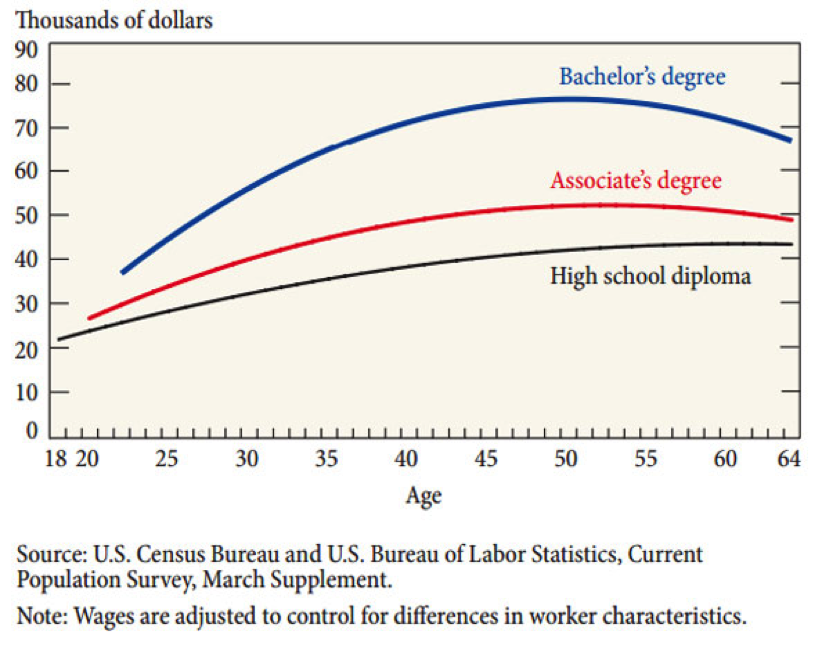The opinions expressed in this article do not represent the views of The Excelsior.
By Courtney Elder
Published: October 14, 2014
If you were a contestant on the game show “Who Wants to Be a Millionaire?”,you would probably have to use all of your lifelines to answer the million-dollar question: is getting a bachelor’s degree worth it?
With rising tuition costs, the million-dollar question becomes increasingly difficult for the pursuant college student to answer.
The difficulty behind answering the question flat out stems from the argument that college students are paying more for the cost of their tuition than they are earning after being conferred a bachelor’s degree.
However, according to a recent study done by economists from the Federal Reserve Bank of New York Jaison R. Abel and Richard Deitz, baccalaureate degree holders break even on their college investment.
Abel and Deitz say, “In the period between 1970 and 2013 as a whole, those with a bachelor’s degree earned about $64,500 per year” and “those with a high school diploma earned only $41,000 per year.” Yet, we must be careful to note that these figures have fluctuated over time due to wages declining as a result of the ever-changing economy.
Abel and Deitz’s research suggests that between 2001 and 2013, wages declined about 10 percent for baccalaureate degree holders and a little over 7 percent for non-degree holders, specifically those with only a high school diploma or a general education diploma.
Despite the research on declining wages between the 2001-2013 timeframe, college graduates with a bachelor’s degree can expect to earn about 75 percent more income, in their lifetime, than high school grads.
At this point, you’re probably wondering about college graduates that land jobs outside of the degree in which they specialized. It’s a great question to consider, since those of us who have yet to graduate often wonder what lies ahead of the commencement ceremony we anxiously await.
We may all know a friend (or two) who went on to graduate before us and is currently working at the local department store or in some tight, makeshift cubicle pushing pencils or refilling the stapler. This is the ultimate representation of underemployment to a current college student or recent graduate.
“About a third of those who obtain a college degree do spend much of their careers in jobs that typically do not require a bachelor’s degree,” says Abel and Deitz. But don’t worry; according to Abel and Dietz, college students who are underemployed are less likely to remain in the same condition for their entire working life .
Due to the extensive evidence presented, a bachelor’s degree shouldn’t yet be devalued. At the very least, you should see your bachelor’s degree as the preliminary step towards advancing your career goals. After receiving a high school diploma, a bachelor’s degree is the first of many important tools that prepares you to compete in the constantly evolving workforce.
The infamous million-dollar question as to whether a bachelor’s degree is worth it may always be challenging to answer, and the argument to follow may always seem complicated, despite research and analysis. But at least now there are a variety of ways to look at it from the inside out.
College graduates and students alike should also duly note that, although they are likely to earn more in their lifetime than someone who doesn’t have a degree, one’s field of study is a determining factor in regards to return on investment.




